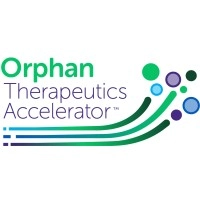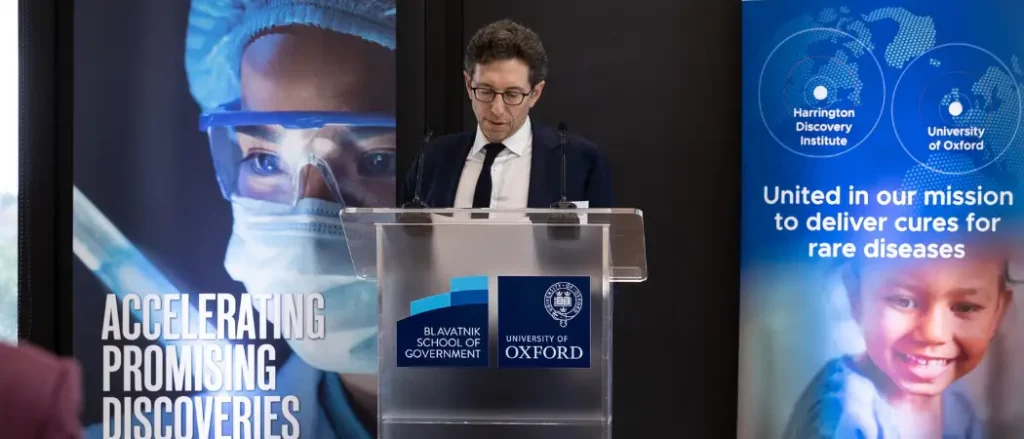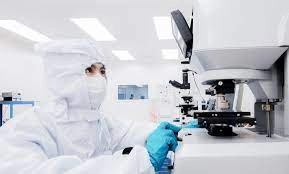Orphan Therapeutics Accelerator: A Catalyst for Rare Disease Treatments

Overview of Orphan Drugs and Rare Diseases
Orphan drugs are pharmaceutical agents developed specifically to treat rare diseases, which affect a small percentage of the population. These diseases, often referred to as orphan diseases, are typically under-researched and lack effective treatments. Developing drugs for these conditions is a complex, time-consuming, and costly process, which is where orphan therapeutics accelerators come into play.
Importance of Accelerators in Drug Development
Accelerators are specialized programs designed to fast-track the development of drugs and therapies. They provide crucial support, resources, and expertise to help bring treatments from the lab to the market more efficiently. In the realm of orphan drugs, these accelerators are vital in overcoming the unique challenges posed by rare disease drug development.
Overview of the Article
This article will explore the concept of orphan therapeutics accelerators, their role in the development of orphan drugs, and why they are crucial for advancing treatments for rare diseases. We’ll also discuss the benefits, key players, challenges, and future trends in this field, along with practical tips for engaging with these accelerators.

What is an Orphan Therapeutics Accelerator?
Definition and Purpose
An orphan therapeutics accelerator is a program or initiative specifically designed to support the development of orphan drugs. These accelerators provide funding, resources, mentorship, and access to a network of industry experts to help researchers and companies navigate the complexities of bringing orphan drugs to market.
Role in the Orphan Drug Development Process
Orphan therapeutics accelerators play a pivotal role in the orphan drug development process by identifying promising therapies, providing the necessary infrastructure for research and development, and assisting with clinical trials and regulatory approvals. Their involvement can significantly reduce the time and cost associated with developing orphan drugs.
Why Orphan Drugs Matter
The Burden of Rare Diseases
Rare diseases, though individually uncommon, collectively affect millions of people worldwide. These conditions often have devastating impacts on patients and their families, leading to significant physical, emotional, and financial burdens. Despite this, the limited patient population for each disease makes drug development less attractive to pharmaceutical companies.

Challenges in Developing Orphan Drugs
Developing orphan drugs poses several challenges, including limited market incentives, high research and development costs, and complex regulatory pathways. Additionally, the small patient populations make it difficult to conduct large-scale clinical trials, further complicating the drug development process.
Impact on Patients and Healthcare Systems
Orphan drugs can be life-changing for patients with rare diseases, offering new treatment options where none previously existed. They also reduce the long-term burden on healthcare systems by providing effective treatments that can prevent disease progression and reduce the need for costly interventions.
How Orphan Therapeutics Accelerators Work
Identifying Promising Therapeutics
Orphan therapeutics accelerators begin by identifying promising drug candidates that have the potential to address unmet needs in rare diseases. This involves a rigorous selection process, evaluating the scientific basis, potential impact, and feasibility of development.
Providing Resources and Expertise
Once a therapeutic candidate is selected, the accelerator provides a range of resources, including funding, access to research facilities, and expert mentorship. These resources are crucial in overcoming the financial and technical barriers that often impede orphan drug development.
Facilitating Clinical Trials and Approvals
Accelerators also play a key role in facilitating clinical trials, navigating regulatory requirements, and securing approvals from agencies like the FDA or EMA. Their expertise in these areas helps to expedite the process, bringing effective therapies to patients faster.

Benefits of Orphan Therapeutics Accelerators
Speeding Up Drug Development
One of the primary benefits of orphan therapeutics accelerators is their ability to speed up the drug development process. By providing targeted support and resources, they help researchers and companies move from discovery to market more quickly, reducing the time patients have to wait for new treatments.
Reducing Costs and Risks
Developing orphan drugs is a high-risk, high-cost endeavor. Accelerators help to mitigate these risks by providing funding, reducing operational costs, and offering expert guidance, thereby increasing the likelihood of successful drug development.
Fostering Innovation and Collaboration
Orphan therapeutics accelerators foster innovation by bringing together diverse stakeholders, including researchers, clinicians, patients, and industry leaders. This collaborative approach leads to the development of novel therapies and accelerates the translation of scientific discoveries into real-world treatments.
Key Players in the Orphan Therapeutics Accelerator Space
Notable Accelerators
Several accelerators are leading the charge in orphan drug development. These include programs like the Cures Within Reach Accelerator, the Orphan Drug Accelerator by BioMotiv, and the NIH’s Therapeutics for Rare and Neglected Diseases (TRND) program. Each of these initiatives plays a critical role in advancing treatments for rare diseases.
Case Studies of Successful Drug Development
There are numerous success stories of orphan drugs developed with the support of accelerators. For example, a breakthrough therapy for a rare genetic disorder was fast-tracked by an accelerator, reducing the development time by several years and bringing much-needed relief to patients.
Challenges and Considerations for Orphan Therapeutics Accelerators
Funding and Investment Challenges
Securing sufficient funding is one of the biggest challenges for orphan therapeutics accelerators. Due to the small market size for each orphan drug, attracting investment can be difficult. Accelerators must often rely on a mix of public funding, private investment, and philanthropic donations to support their activities.
Regulatory Hurdles
Navigating the regulatory landscape for orphan drugs is complex and can vary significantly between regions. Accelerators must work closely with regulatory bodies to ensure that therapies meet all necessary requirements, which can be a time-consuming and resource-intensive process.
Ethical Considerations in Rare Disease Research
Ethical considerations are paramount in rare disease research, particularly when it comes to patient involvement in clinical trials. Accelerators must ensure that trials are conducted ethically, with informed consent and patient safety as top priorities.

The Future of Orphan Therapeutics Accelerators
Emerging Trends and Technologies
The future of orphan therapeutics accelerators is likely to be shaped by emerging trends and technologies, such as gene editing, AI-driven drug discovery, and personalized medicine. These advancements have the potential to revolutionize orphan drug development, making it more efficient and effective.
Global Expansion and Collaboration
As the importance of orphan drugs continues to grow, we can expect to see increased global collaboration among accelerators, research institutions, and pharmaceutical companies. This expansion will facilitate the sharing of knowledge, resources, and best practices, further accelerating the development of treatments for rare diseases.
Practical Tips for Engaging with Orphan Therapeutics Accelerators
How to Apply and Get Involved
If you’re interested in engaging with an orphan therapeutics accelerator, start by researching programs that align with your therapeutic area. Most accelerators have an application process that involves submitting a detailed proposal outlining your research or drug development plan. Be sure to highlight the potential impact of your work on patients with rare diseases.
Building Partnerships with Stakeholders
Building strong partnerships with key stakeholders, including patients, advocacy groups, and industry leaders, is crucial for success in the orphan drug space. Accelerators often facilitate these connections, helping you to form valuable collaborations that can drive your project forward.
Conclusion
Summary of Key Points
Orphan therapeutics accelerators play a crucial role in the development of treatments for rare diseases. By providing targeted support, resources, and expertise, they help to overcome the unique challenges associated with orphan therapeutics accelerators play a crucial role in the development of treatments for rare diseases. By providing targeted support, resources, and expertise, they help to overcome the unique challenges associated with orphan drug development. These programs accelerate the timeline for bringing new therapies to market, reduce the financial and operational risks, and foster innovation through collaboration among stakeholders.

Final Thoughts and Call to Action
The field of orphan therapeutics is rapidly evolving, with accelerators at the forefront of driving progress. Their work is not only vital for the development of new treatments but also for improving the quality of life for millions of patients worldwide who suffer from rare diseases. If you’re involved in the research or development of orphan drugs, consider partnering with an accelerator to leverage their resources and expertise. Together, we can make a significant impact in the fight against rare diseases.
FAQs
What is the typical timeline for drug development in an orphan therapeutics accelerator?
The timeline for drug development within an orphan therapeutics accelerator can vary significantly depending on the complexity of the disease, the stage of development when the drug enters the accelerator, and regulatory requirements. However, accelerators aim to streamline the process, often reducing the development timeline by several years compared to traditional pathways.
How do accelerators choose which therapeutics to support?
Accelerators typically evaluate therapeutics based on several criteria, including scientific merit, the potential impact on patients, the feasibility of development, and alignment with the accelerator’s mission and resources. A rigorous selection process ensures that only the most promising candidates receive support.
What role do patients play in the process?
Patients play a crucial role in the orphan drug development process, often providing valuable insights into the disease, participating in clinical trials, and advocating for research. Many accelerators involve patients and patient advocacy groups early in the development process to ensure that therapies address real-world needs and challenges.










